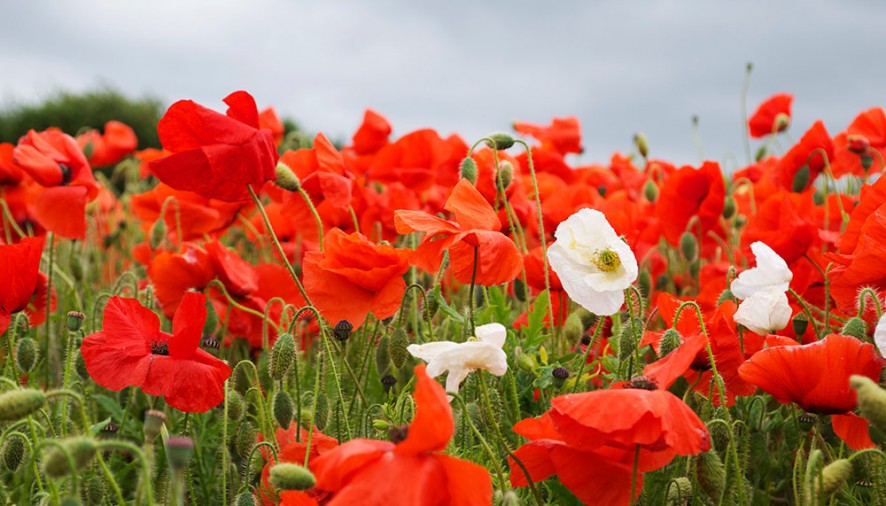As Remembrance Day approaches, we are called to remember those who fought, and are still fighting, in British wars and zones of conflict. The Gryphon focuses on the ‘BlackPoppyRose’ project, launched to remember the often unheralded contributions of Black and African soldiers within global conflicts.
The recognisable red poppy was established as an emblem of Remembrance Day, due to Major John McCrae’s world-renowned war poem “In Flanders Fields”, which details the haunting image of the poppies that grew over the graves of soldiers in the battlefields of Flanders. On Armistice Day, November 11th, remembrance ceremonies are held across the country and poppy wreaths are placed on war memorials. Remembrance Day has become a day of national recognition in the UK since its conception and is marked by a two-minute silence, intended to symbolise the moment that the guns of Europe fell silent on the eleventh hour of the eleventh day of the eleventh month. The Royal British Legion, the charity behind sales of the red poppy, uses the money raised to provide help and support for thousands of veterans, servicemen and their families.
 In recent years, the wearing of the poppy has caused some controversy, as some believe that wearing it supports armed forces currently fighting, and thus find that it justifies unnecessary civilian deaths. As such, the white poppy was established as an alternative by the Peace Pledge Union, the longest running non-religious, pacifist organisation in Britain. The white poppy is an emblem symbolising peace and pacifism, whilst still acknowledging those who have died for their country.
In recent years, the wearing of the poppy has caused some controversy, as some believe that wearing it supports armed forces currently fighting, and thus find that it justifies unnecessary civilian deaths. As such, the white poppy was established as an alternative by the Peace Pledge Union, the longest running non-religious, pacifist organisation in Britain. The white poppy is an emblem symbolising peace and pacifism, whilst still acknowledging those who have died for their country.
Uproar over the wearing of the poppy in the public eye is not uncommon. Charlene White, an ITV news presenter, received a torrent of abuse in 2014 when she did not wear a poppy on screen. She justifies her decision, stating that she felt uncomfortable supporting just one charity when so many other charitable causes are worthy of such public support:
“I come from a Forces family. My Dad served in the RAF, and my uncle served in the Army […] But I don’t expect everyone to support it. However it is always important to remember what my family, your family, and millions of people over many generations have fought for: the right to choose, and the right of freedom of speech and expression”.
In light of her comments, the British legion has affirmed that wearing a poppy is ultimately a personal choice.
The company ‘You, I, We Are Enough’ have launched a project promoting the BlackPoppyRose as another alternative as we near Remembrance Day, with the hope of enlightening and educating people from all around the world about the contributions of Black and African soldiers in global war efforts. They also aim to collect stories, photos, and artefacts from the families of those who served in order to document and raise awareness of this history amongst future generations. The money raised is donated to The West Indian Association of Service.
As important as the red poppy is, the BlackPoppyRose has been designed to remember the many and varied overlooked contributions of social groups within global conflicts; such as the efforts of colonies fighting for Britain in both of the World Wars, the Haitian Revolution, and the American War of Independence. On a day that is intended for the very purpose of recognition and memory, the roles of whole communities are being forgotten.
This year, the project is focusing on the contribution of colonies and other African soldiers within the First World War. Overall at least 80,000 black Africans fought in the First World War alone yet, according to survey conducted by the British council in 2014, only one in five members of the British public know about the involvement of African combatants and non-combatants in WW1. Dr. Santanu Das indicates in his book on the matter that ‘even by conservative estimates, the total number of non-white men mobilised into the European and American armies during the First World War comes to well over four million, though not all of them saw active service’. Some of the earliest fighting broke out in the German territories within Africa, and many of the allies continued to rely heavily upon their troops from colonies throughout the war effort. Across Africa, non-combatants were expected to work as weapons carriers instead of railways or roads; more than one million men were employed, not always willingly, to carry the weapons and supplies so crucial to the war effort: up to 100,000 died in the process. The effects of this wartime disruption upon African countries led to food shortages, famine and disease, which had long-lasting and detrimental effects upon an already turbulent continent.
The BlackPoppyRose forms both an important addition to the remembrance of Black history and highlights that it is important to value each and every one of the multiple, worldwide contributions to the peace that we now enjoy in Britain. Hundreds of thousands lost their lives, from all corners of the globe, and the lives of many others were and have been drastically affected. Alongside the red poppy and the white poppy, the BlackPoppyRose aims to immortalise these untold historical legacies in the memories of future generations, ensuring that no-one who served is forgotten.
Stephanie Uwalaka & Molly Walker-Sharp
If you wish to learn more about the BlackPoppyRose, you can do so at www.blackpoppyrose.org or by following their Facebook page.
Images: Joanne Fowler, Nankai, BlackPoppyRose

